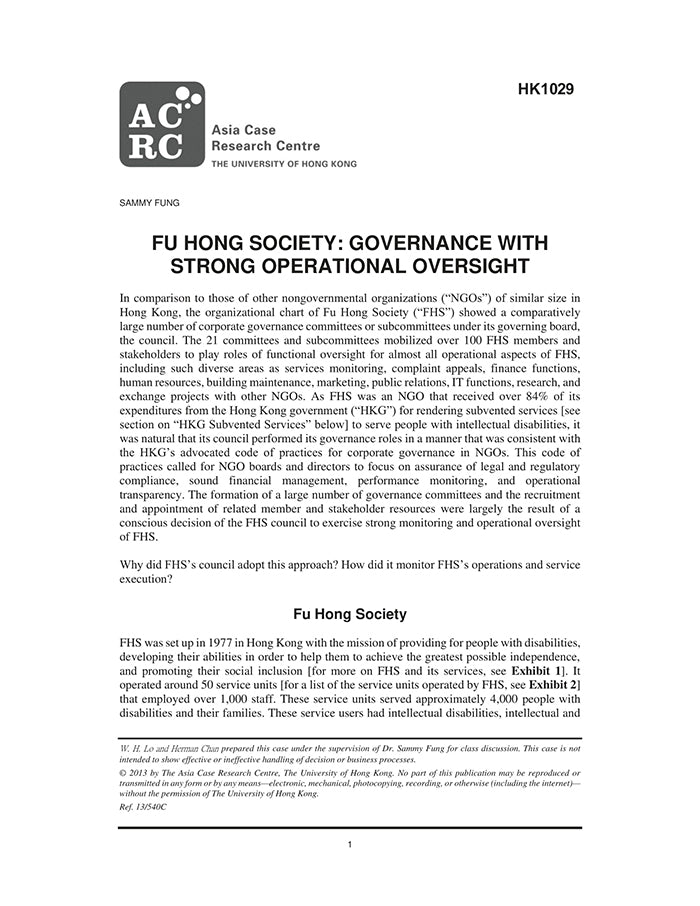Fu Hong Society: Governance with Strong Operational Oversight
受取状況を読み込めませんでした
In comparison to those of other nongovernmental organizations ("NGOs") of similar size in Hong Kong, the organizational chart of Fu Hong Society ("FHS") shows a comparatively large number of corporate governance committees or subcommittees under its governing board, the council. The 21 committees and subcommittees mobilize over 100 FHS members and stakeholders to play roles of functional oversight for almost all operational aspects of FHS, including such diverse areas as services monitoring, complaint appeals, finance functions, human resources, building maintenance, marketing, public relations, IT functions, research, and exchange projects with other NGOs. As FHS is an NGO that receives over 84% of its expenditures from the Hong Kong government ("HKG") for rendering subvented services to serve people with intellectual disabilities, it is natural that its council performs its governance roles in a manner that is consistent with the HKG's advocated code of practices for corporate governance in NGOs. This code of practices calls for NGO boards and directors to focus on assurance of legal and regulatory compliance, sound financial management, performance monitoring, and operational transparency. The formation of a large number of governance committees and the recruitment and appointment of related member and stakeholder resources are largely the result of a conscious decision of the FHS council to exercise strong monitoring and operational oversight of FHS. Why did FHS's council adopt this approach? How does it monitor FHS's operations and service execution?
【書誌情報】
ページ数:23ページ
サイズ:A4
商品番号:HBSP-HK1029
発行日:2013/12/31
登録日:2014/4/21

